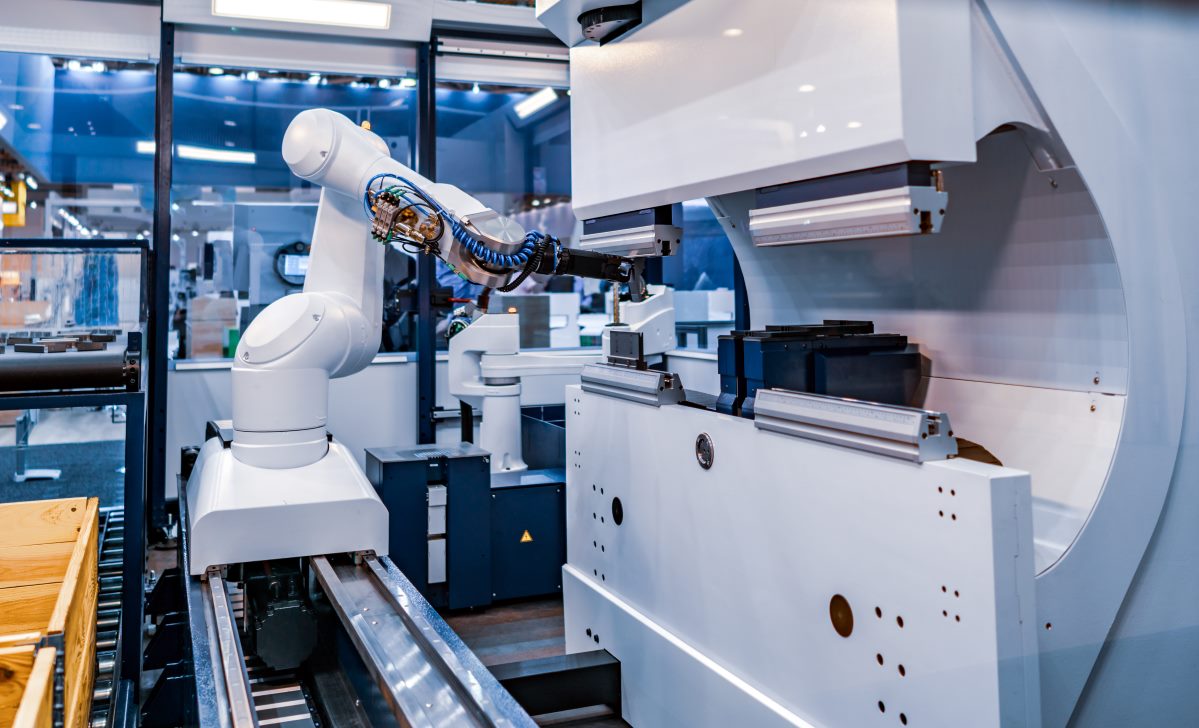New report examines digital transformation efforts in manufacturing during COVID-19 pandemic

IBM recently released a report looking at digital transformation efforts throughout the COVID-19 pandemic. According to the report, 67 percent of manufacturers have accelerated their adoption of digital technologies as a result of the pandemic.
“The pandemic was a wake-up call that disrupted the as-is more than anyone could have previously anticipated,” said Rishabh Arora, Industry 4.0 Leader at IBM UK. “For many, it has been a bitter reality: painful, costly, still unresolved. For a few lucky others, it has offered an unforeseen windfall.”

Rishabh Arora, Industry 4.0 Leader at IBM UK
The report was based on a survey of senior manufacturing professionals conducted in November and December 2020 by The Manufacturer who produced the report commissioned by IBM. Those surveyed included professionals in aerospace, chemicals, pharmaceuticals, food, drink, defense, machinery, electronics, and electrical equipment.
“This Digital Transformation Assessment sought to understand the current business imperatives, how the Coronavirus pandemic has affected priorities, and the strategic role adopting digital technologies will play for manufacturing businesses and their supply chains,” the report says.
Nearly all of those surveyed said their most significant business imperative is improving operational efficiency. Additionally, 88 percent of respondents said COVID-19 has resulted in their organization placing greater emphasis on operational resilience.
“Either way, executives must accept that pandemic-induced changes in strategy, management, operations and budgetary priorities are here to stay,” Arora said. “As seen in this report, the pandemic has made executives more trusting of what technology can do, and they are pushing ahead with investments to digital transformation.
“This presents an enticing opportunity for executives who can manage complexity and drive competitiveness by tying digital transformation to business priorities – while others are still waiting for things to ‘go back to normal’.”
The report found that time is the primary factor impeding digital transformation efforts as manufacturing operations often don’t have the time to spare to focus on improvements. Fifty-eight percent of respondents identified time as the most significant barrier to implementing new technologies.
“As the report makes clear, the immediate focus has been on improving operational efficiency and resilience in order to achieve maximum output with minimum outlay – ultimately, to keep factory doors open,” said Jonny Williamson, editorial director of The Manufacturer, who authored the report. “Businesses have faced disruption at every turn and the vast majority have demonstrated an incredible capacity to embrace change at speed.”
The report also indicates that manufacturers view cybersecurity as an integral component to achieving their digital transformation objectives. Ninety-two percent said cybersecurity technologies help them meet their business goals. This seems to represent an increase from last year when according to The Manufacturer’s Annual Manufacturing Report 2020, 82 percent of businesses had “a clearly defined, articulated and enacted cybersecurity strategy.”
Another 90 percent said advanced data analytics including predictive/prescriptive analytics were essential. Eighty-five percent view automation and robotics as important. And 83 percent cited IIoT/IoT data from devices.
“Increasingly, manufacturers are also looking to use digital tools and data insights to extend their existing continuous improvement activities, with momentum building around what has been termed ‘Digital Lean’. The concept of ‘lean’ has been around for decades and almost every manufacturing operation now has some form of lean program, whether bespoke or a more widely adopted methodology. These programs have been consistently delivering strong, double-digit gains around productivity, waste reduction and cost savings,” the report says.
However, while manufacturers understand the importance of these technologies, time remains a barrier to implementation.
“Time is our biggest problem. People are too focused on day-to-day activities and don’t have – or aren’t given – the time to think more strategically and explore more efficient ways of doing things,” said one respondent.
For this reason, while nearly all respondents identified cybersecurity as important, only 88 percent reported making strong headway with cybersecurity technology adoption. Additionally, only 79 percent reported advanced data analytics including predictive/prescriptive analytics adoption and 73 percent said the same for IIoT/IoT device adoption.
“It’s encouraging to see cybersecurity, analytics and cloud computing as the most widely adopted technology use cases,” Williamson said. “This ‘Process Transformation’ represents the critical first step in a digital journey that enables future ‘Business Model Transformation’.
“If 2020 was the year for internal digital transformation, 2021 is when attention will turn to the external, customer-facing areas of an operation. That may present greater challenges for businesses, but equally, it will provide greater rewards for those who get it right.”
Respondents also reported issues securing funds for digital transformation efforts. Fifty-two percent cited securing internal funding as a barrier to adoption, while 96 percent said it was the most important way to support these efforts.
“It’s relatively easy to secure funding for something that will deliver an obvious benefit within a relatively short timeframe. The barrier is more infrastructure-related – the network, connectivity, and systems that allow us to gather information,” said one senior manager at a global automotive manufacturer. “We are moving forward but as an older plant, our operating systems aren’t where they should be. It’s probably not too costly to upgrade and the improvements will have an impact site-wide and across the wider organization, but it’s getting the right people to support it. Something like a robot or a computer vision quality system has a clear project owner; who does infrastructure sit with?”
The report also found that 75 percent of manufacturers are placing greater emphasis on supply chain integrity and resilience as a result of the pandemic.
“Increasingly, we have to look at the cyber-vulnerability of our supply base, we have to be very careful about threats that could creep into our system via a back door. If part of your operation is security and you’re not secure, you’re out of business in weeks,” said one chief technology officer at an electrical systems and services provider for the aerospace, defense and security sectors.
Moving forward, the report recommends manufacturers engaging in digital transformation efforts focus on supply chain resiliency, operational efficiency, cybersecurity and adoption of automation and AI.
“This new world permits no time for complacency or nostalgia. Risks and opportunities are too great, the stakes too high,” the report says. “Executives need to prepare their businesses for ongoing uncertainty, inevitable disruption and never-ending change.”










